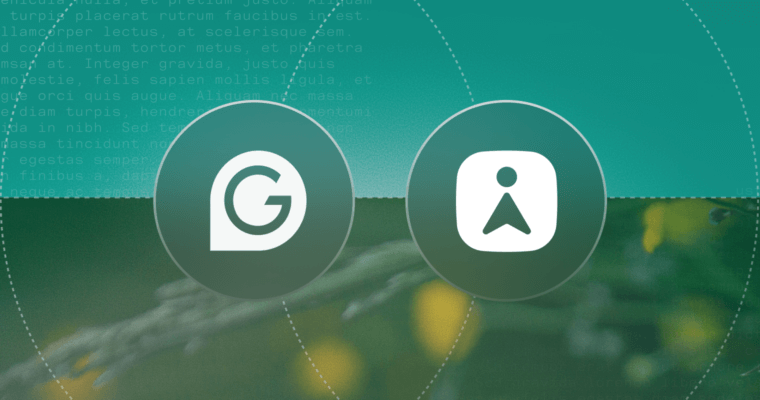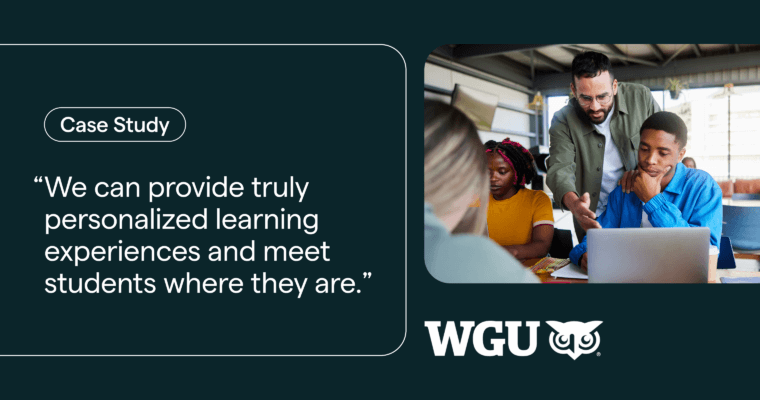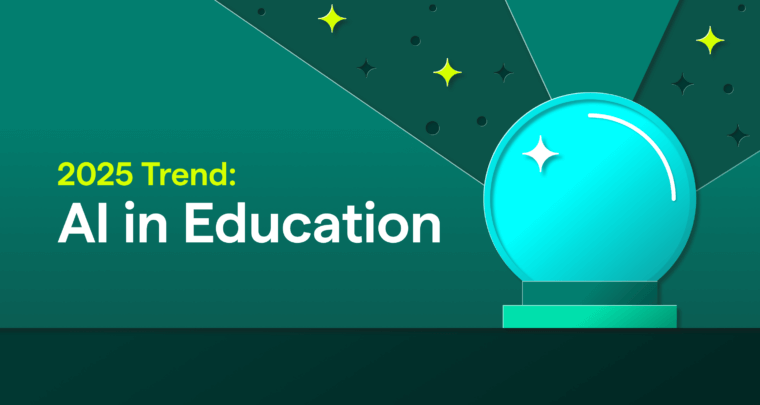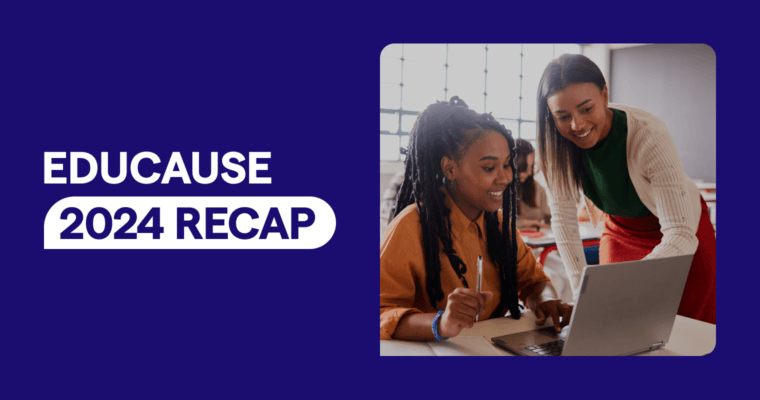
This post is authored by Matt Otremba, Director of Communication and Transformation at Rasmussen University.
No topic captured higher education’s imagination more in 2023 than generative
artificial intelligence (AI). To what extent will imagination become a reality in 2024?
Like many educational institutions worldwide, Rasmussen University was
simultaneously fascinated and concerned by the arrival of generative AI technology like ChatGPT in late 2022. There were some calls to “shut it down and police it” due to academic integrity concerns, but most of our faculty and administrators were wrestling with more substantive and long-term questions about what generative AI means for teaching and learning, how it can advance equity in higher education, and where it can be used to drive innovation for assessment and instruction.
Your trusted AI partner for institutional success
Empower students and faculty to become more effective communicators with the help of AI-enabled writing assistance
As Rasmussen University leadership met with key stakeholders to learn more about generative AI solutions beyond just ChatGPT, the university chose a proactive approach toward understanding and leveraging the potential of generative AI. In early 2023, we embarked on a strategic, year-long initiative to advance its responsible use. This included the development of a meaningful policy and opportunities for faculty to learn more and offer their contributions related to generative AI and how it should be featured in their classroom.
Here’s how our story evolved in 2023:
- Winter: Through student and faculty focus groups, we learned that both
were concerned about academic integrity and the ethical implications of
generative AI. Students confirmed its widespread use while voicing the need
for guidance on using it effectively for learning. We equipped university
administrators with professional development opportunities, building a
shared understanding of generative AI within the institution. - Spring: Collaboration took center stage with a generative AI summit. Internal stakeholders and external experts engaged in thought-provoking discussions on human-centered learning and ethical assessment in the age of this powerful technology. This paved the way for the initial draft of Rasmussen University’s generative AI policy for students. Core elements of this policy were ethical use (including proper citation) and student responsibility for the quality of ideas produced with generative AI.
- Summer: Our Generative Artificial Intelligence (AI) Learning, Assessment,
and Research Policy was approved. During our annual Academic Symposium,
faculty participated in professional development sessions on generative AI.
The theme for that event was “Next Now,” underscoring the imperative to
embrace transformative technology that leads to student success and career
preparation. Event speakers included Rasmussen faculty and academic staff
who shared strategies for using generative AI to create engaging learning
scenarios and effective rubrics for assignments, as well as leveraging this technology for innovative approaches to course development that are both media-rich and interactive. - Fall: Knowledge, resources, and action came together in the year’s final
quarter. We shared the university’s generative AI policy with students,
ensuring transparency and clarity. To support the rollout of this policy, our
Library and Learning Services teams developed resources for students
ethical and practical use of generative AI. Rasmussen’s Faculty Excellence
department also offered a series of learning circles that created safe spaces
for honest conversations. In a short time, the discussion shifted from focusing
on cheating and academic integrity concerns to deeper explorations about
how to model best practices for generative AI. These learning circles will
remain ongoing.
Professional development and policy creation were key focus areas in 2023. Throughout 2024, we will emphasize equitable access to reputable generative AI technology. This includes expanding our faculty and students’ access to Grammarly’s AI writing assistance capabilities.
Rasmussen has been a Grammarly for Education customer since 2020, providing
licenses for all faculty and students. Ensuring our students have access to high-
quality support tools was a significant reason we initially provided Grammarly for all students, and equitable access is even more critical in the generative AI era. We’ve turned to Grammarly as a strong partner because of its responsible AI guardrails, transparent citation features, and ease of use for faculty and students.
Last fall, we activated generative AI features in Grammarly for all faculty to prepare them for a larger rollout to students in early February. By giving access to faculty first, we allowed them to experiment for themselves and see the value of Grammarly’s in-context AI features for student learning, including brainstorming prompts and real-time feedback. We are excited to place this technology in the hands of students so they can leverage it to realize the potential and promise generative AI has for learning.
While our journey with generative AI is ongoing at Rasmussen University, we are optimistic about our trajectory. We believe that with a continued focus on educating ourselves on a rapidly shifting AI landscape and routine application of strong AI tools, we’ll become a positive example of what responsible, ethical AI implementation can look like in higher education.
About the Author:
Matt Otremba is the Director of Communication and Transformation at Rasmussen University. Prior roles at Rasmussen had Matt overseeing faculty training and development as well as academic innovation. He has taught various writing and general education courses for the university. Matt received his MFA in Creative Writing from the University of Houston.
About Rasmussen University:
Rasmussen University is dedicated to changing lives and the communities it serves through innovative educational programs. As a pioneer in career-focused education since 1900, the University is defining a new generation of higher education that focuses on competency-based education, technology, and transferable skills. Accredited by the Higher Learning Commission, Rasmussen offers undergraduate and graduate programs online and in person at 22 campuses nationwide. The University is designed to lift and support its students every step of the way, from each student’s first credential to their last. Rasmussen encourages its students, faculty, and staff to strive for academic excellence, community enrichment, and service to the public good. Rasmussen is a wholly-owned subsidiary of American Public Education, Inc. (Nasdaq: APEI). For more information about Rasmussen University, please visit www.rasmussen.edu.






